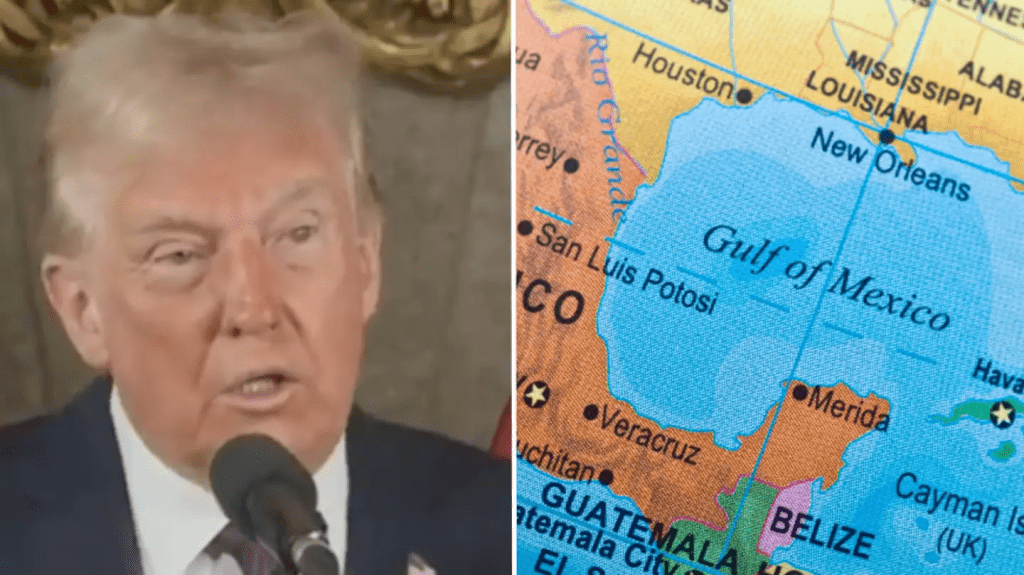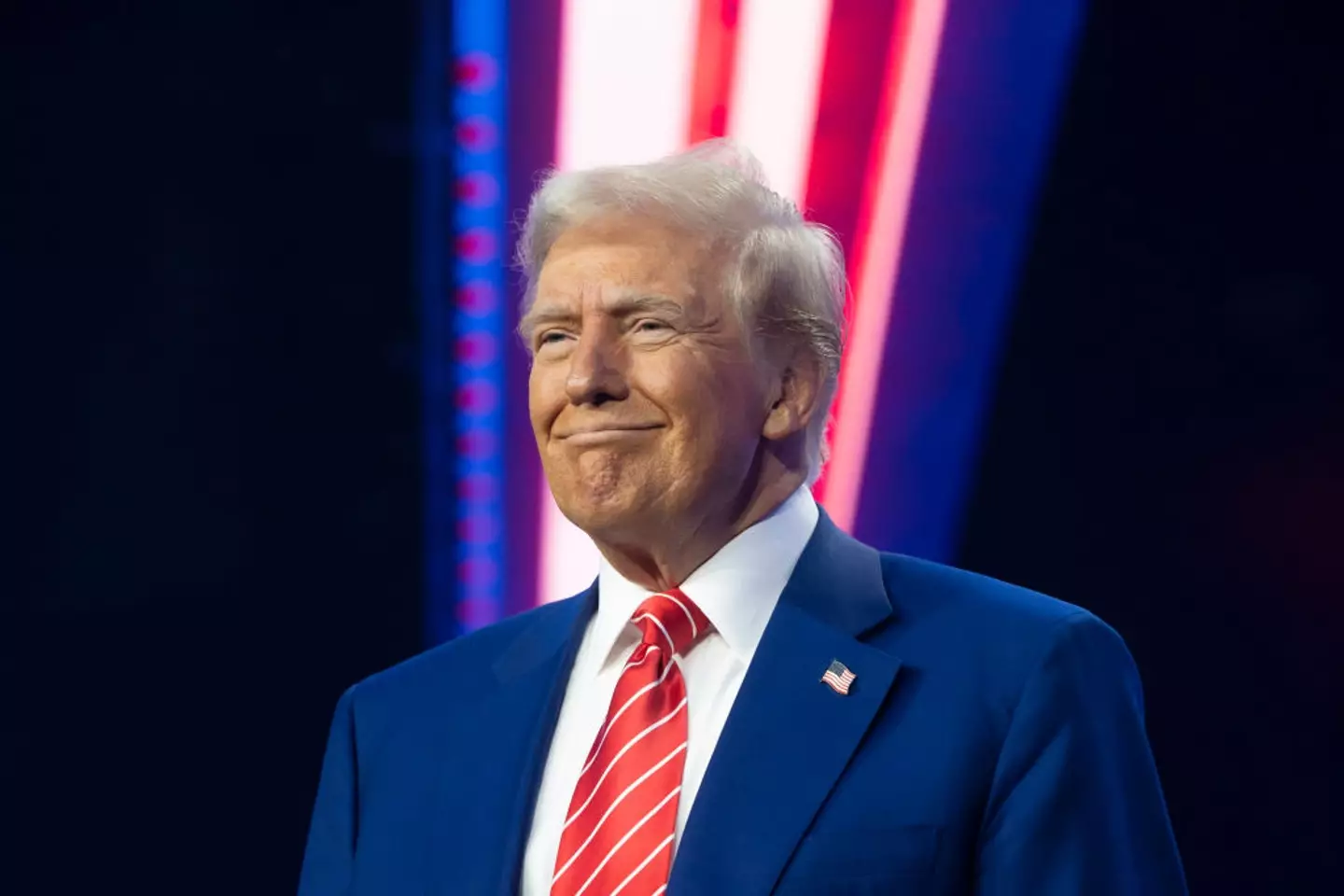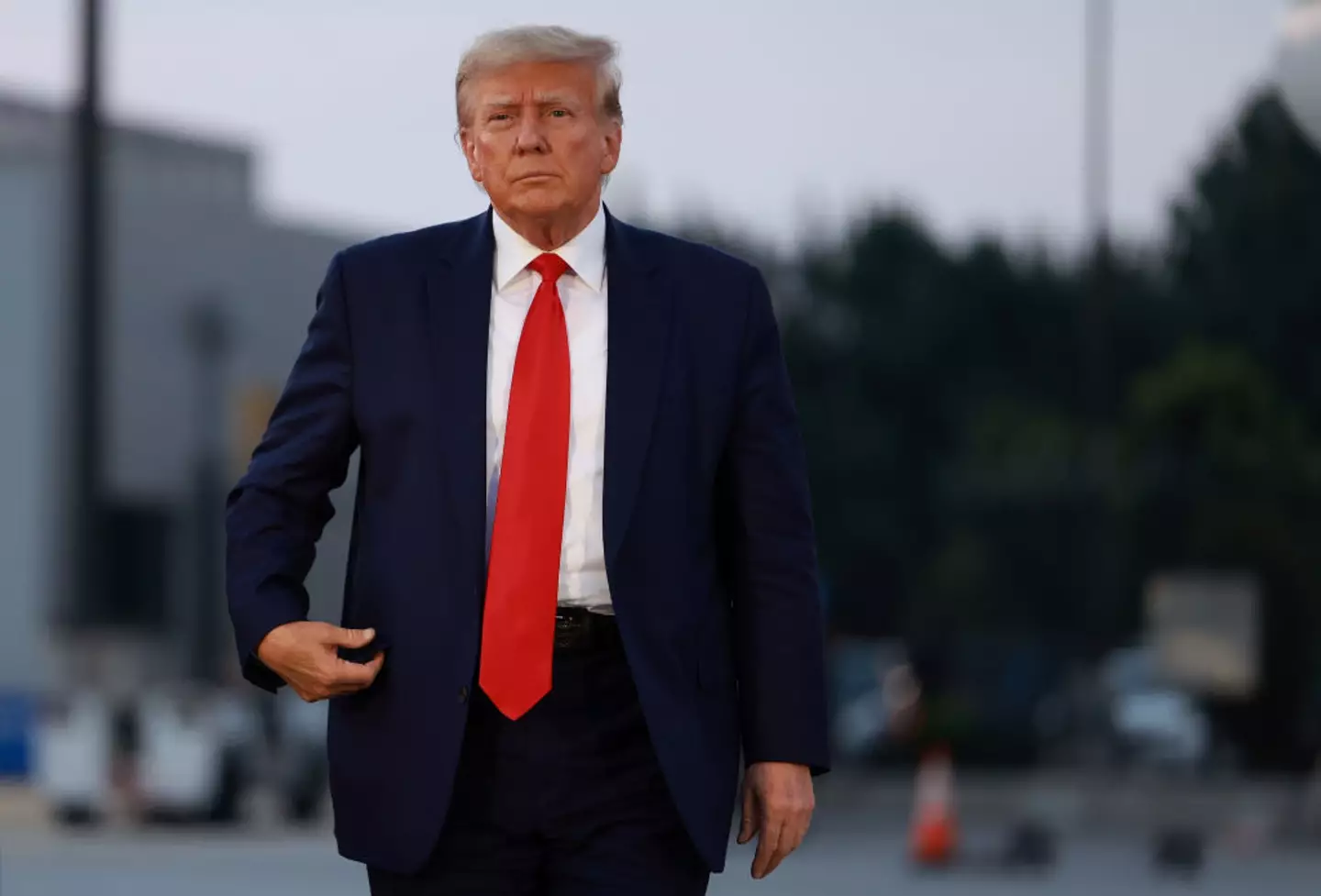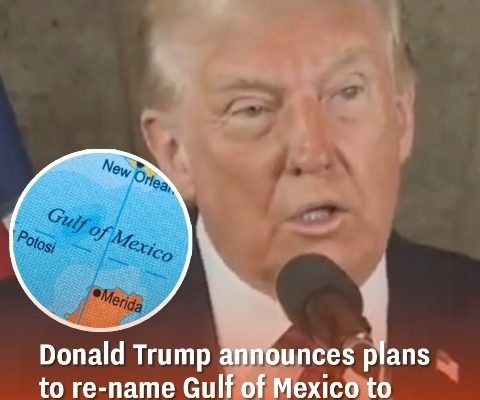Donald Trump has once again ignited controversy with his bold declarations. As the president-elect prepares for his second term in office, he has announced plans to rename the Gulf of Mexico to what he deems a “more appropriate” title: the Gulf of America. This unexpected proposal has sparked a wave of reactions across social media and beyond, leaving many to wonder about its feasibility and implications.
A Historic Comeback for Trump

Before delving into the renaming saga, let’s set the stage. Donald Trump, at 78 years old, made history by winning the 2024 U.S. Presidential Election, defeating Democrat Kamala Harris. This victory marks Trump’s return to the White House, making him only the second U.S. president in history to serve two non-consecutive terms—the first being Grover Cleveland in the late 19th century.
Though Trump’s second inauguration is set for January 20, 2025, he’s wasting no time in laying out his vision for the next four years. And one of his first publicized ideas? Renaming the Gulf of Mexico.
The Proposed Name Change: From Gulf of Mexico to Gulf of America
During a news conference on January 7, 2025, Trump casually floated the idea of renaming the Gulf of Mexico to the Gulf of America. According to him, the new name better reflects the vast territory the Gulf covers and embodies the spirit of American pride.
Trump stated, “We’re going to be announcing at a future date, really soon, we’re going to be changing the name of the Gulf of Mexico to the Gulf of America. It covers a lot of territories… the Gulf of America, what a beautiful name. And it’s appropriate.”
While Trump’s statement reflects his trademark boldness, it also raises questions about the practicality of such a move. Would other countries bordering the Gulf, such as Mexico and Cuba, acknowledge the change? And does the United States even have the authority to unilaterally rename a body of water with international significance?
The Challenges of Renaming an International Body of Water
Renaming a major geographic feature like the Gulf of Mexico is not as simple as issuing a presidential directive. Such a change would require international cooperation, as the Gulf borders not only the United States but also Mexico and Cuba.
According to the Associated Press, it’s highly unlikely that other countries would adopt the proposed name. The Gulf of Mexico’s name is deeply rooted in history, geography, and international usage, making it difficult to enforce a unilateral rebranding.
This situation echoes similar attempts in the past where proposed name changes failed to gain traction. One social media user compared it to Elon Musk renaming Twitter to “X,” saying, “This is like Elon Musk renaming Twitter yet everyone calls it Twitter.”
Another chimed in, “No one will be calling it this btw.”

Donald Trump says he plans on renaming the Gulf of Mexico (Rebecca Noble/Getty Images)
Social Media Reacts: A Mix of Confusion and Humor
As expected, Trump’s proposal set social media ablaze. Twitter (or X, as Musk now calls it) was flooded with posts mocking the idea, questioning its necessity, and speculating about its success.
While many users dismissed the name change as impractical, others leaned into humor, poking fun at the idea of forcing an international community to adopt a distinctly American name.
One user sarcastically remarked, “Next up: Trump renames the Atlantic Ocean to the ‘Freedom Sea.’”
The backlash highlights the challenges of implementing such a change in a world that thrives on international consensus.
Trump and Musk: A Not-So-Subtle Friendship
Interestingly, this announcement comes amid Trump’s public praise for Elon Musk, the billionaire tech mogul and owner of X (formerly Twitter). Musk was vocal in his support for Trump during the 2024 election, even tweeting, “The people of America gave @realDonaldTrump a crystal clear mandate for change tonight.”
Trump addressed Musk’s rumored political ambitions at a recent Americafest event, shutting down the idea of Musk running for president due to his non-U.S. birth. Trump joked, “No, he’s not taking the presidency. I love having smart people… but he wasn’t born in this country. Ha, ha.”
Despite this playful jab, Trump praised Musk’s contributions to the tech and space industries, calling him a visionary leader who has helped shape America’s future.

Trump is set to be inaugurated on 20 January (Joe Raedle/Getty Images)
The Bigger Picture: What Does This Mean for Trump’s Second Term?
Trump’s announcement about renaming the Gulf of Mexico offers a glimpse into his priorities for his second term in office. While the proposal might seem trivial to some, it underscores Trump’s focus on reasserting American identity and influence.
Renaming geographic landmarks, whether symbolic or practical, is not a new concept in history. However, such changes often require broad consensus and cultural acceptance, two elements that Trump’s plan is likely to lack.
If the proposal is pursued, it may face significant hurdles both domestically and internationally. Still, the announcement has succeeded in generating attention, something Trump has always excelled at.
The Inauguration Awaits
As Trump prepares for his January 20 inauguration, the world watches with anticipation. The transition of power from Joe Biden to Donald Trump will mark the beginning of a new chapter in American politics.
The ceremony, set to take place at the U.S. Capitol, will see Trump take the presidential oath for the second time in his career. As he promises to “preserve, protect, and defend the Constitution of the United States,” questions remain about how his policies—both serious and symbolic—will shape the nation’s future.
Conclusion: A Bold Vision or a Symbolic Gesture?
Donald Trump’s proposal to rename the Gulf of Mexico to the Gulf of America has sparked a mix of curiosity, criticism, and amusement. While the practicality of such a change remains in doubt, the announcement reflects Trump’s unique approach to leadership—one that emphasizes bold, headline-grabbing ideas designed to inspire his base and reaffirm American pride.
Whether or not this proposal gains traction, it serves as a reminder of Trump’s ability to keep the world talking. As he steps into his second term, one thing is certain: his presidency will continue to be as unconventional and unpredictable as ever.
The Gulf of Mexico—or Gulf of America, as Trump envisions—may not change its name anytime soon. But the debate it has sparked highlights the complexities of balancing national identity with global consensus in an interconnected world.



